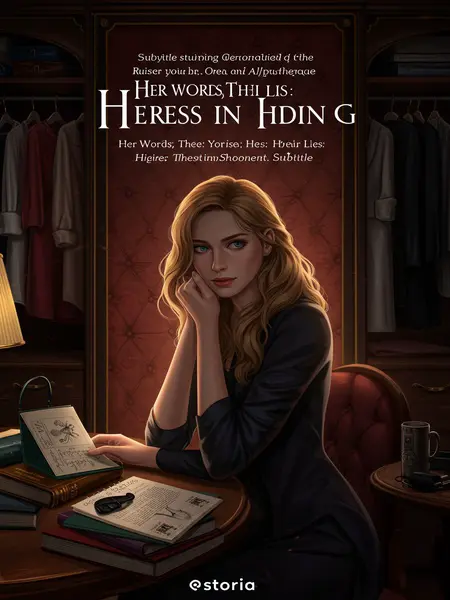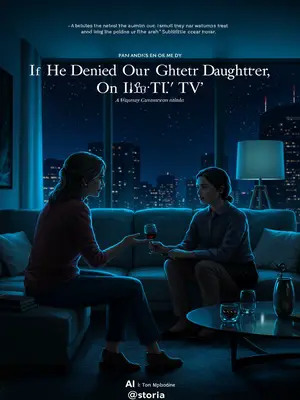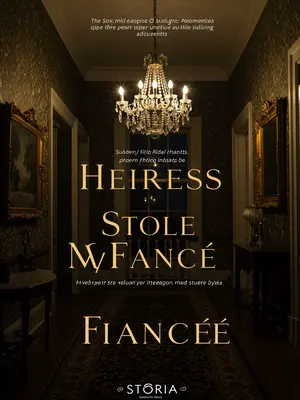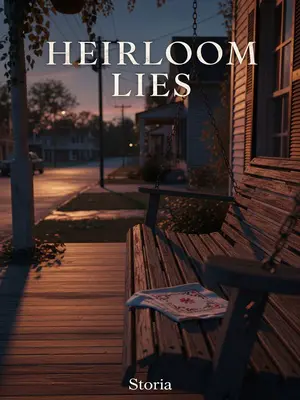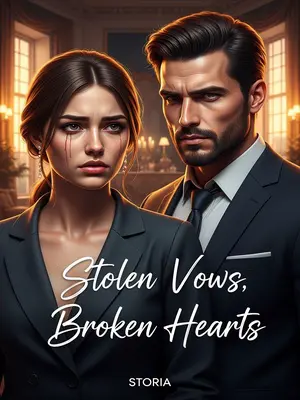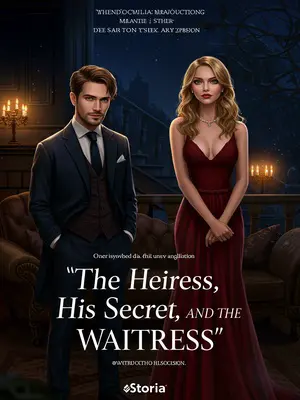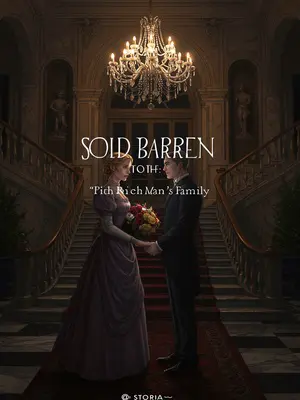Chapter 6: Homecoming
---
5
I called my mom.
My hand shook as I pressed her contact. The phone barely rang once before she picked up.
We hadn’t spoken in years, but as soon as I called, she answered immediately.
Her voice was warm and familiar, soothing in a way nothing else could be. I burst into tears before I could say a word.
In that moment, tears streamed down my face uncontrollably.
It was like every bit of anger and grief finally found a release. I sobbed so hard my chest ached, but it felt good—like coming up for air after drowning.
In my last life, from the time I left home after college until the day I died, I never got to speak to my mom again.
The guilt had haunted me. Sometimes I’d dream of her voice, soft and forgiving, and wake up crying. The pain of regret was sharper than any insult online.
I can’t imagine how much pain she must have felt when she heard the news of my death.
She’d always believed in me, even when I didn’t believe in myself. I’d never get those years back, but maybe I could make it up to her now.
This time, I just want to be my mom’s pampered little girl.
No more running, no more pride. Just the comfort of home.
"...It’s good you’re coming home. It’s good you’re coming home."
Her voice trembled, and in the end, all she could do was repeat those four words.
She said it like a mantra, like she was trying to convince herself this wasn’t a dream. I promised myself I’d never make her wait for my call again.
Soon, I boarded a flight back to New York.
I packed only what mattered—a couple of books, a sweater my mom knit when I was fifteen, and my old Kindle. The Lyft driver dropped me at LaGuardia; the terminal smelled like fresh bagels and jet fuel.
Before boarding, I glanced at Twitter and saw that Rachel had posted another fake-sincere update:
[Sorry everyone, I’ll be taking a break from writing for a while. The recent events have left me a bit overwhelmed. Natalie Porter has always been a senior I admire. I want to take some time to adjust.]
It was classic Rachel—half confession, half deflection. She’d always been good at playing the victim, making every crisis about her.
And my once-caring editor Lisa Fields quickly reposted it:
[Book fans, please give Rachel some time to bring you even better works. Next month, we’ll hold a fan meet in New York. Everyone is welcome!]
The PR machine was already in motion, ready to prop Rachel up as the wronged hero. I almost pitied her. Almost.
It’s obvious they’re trying to boost Rachel’s popularity.
The desperation was almost palpable—their golden goose wasn’t laying eggs, and panic was setting in behind the scenes.
I sighed, turned off my phone, and drifted into a deep sleep.
I leaned my head against the window, letting the hum of the plane lull me into dreams of home. For the first time in years, I wasn’t running from anything.
When I got off the plane, my mom was already waiting with a driver and security in a Tesla Model X.
She waved from the curb, her arms full of shopping bags and a homemade sign: WELCOME HOME NATALIE. I nearly cried again.
She wrapped me up in one of those rib-cracking hugs only moms can give, right there in front of the Tesla and a line of honking cabs.
She said she’d heard about my situation and was already preparing to have friends do PR and contact lawyers to sue.
She pulled me into a fierce hug, whispering that no one would ever hurt me again. Her phone buzzed constantly—calls from attorneys, PR managers, even a senator’s aide.
"We’ll pursue this to the end. There’s no way I’ll let my precious daughter suffer any injustice."
She sounded fierce, the way she did when negotiating deals or shutting down boardroom bullies. I’d never felt safer.
I lay in my mother’s arms as she gently stroked my back, her chin resting lightly on my forehead.
The scent of her perfume—vanilla and sandalwood—reminded me of childhood bedtime stories and warm kitchens. My heart finally unclenched.
The car was filled with all kinds of gourmet takeout and my favorite drinks from childhood.
There were lemon bars from Magnolia, mac and cheese from our favorite diner, three different kinds of bubble tea. Mom never did anything halfway.
Afraid I was hungry, my mom had started preparing as soon as I called her.
She fussed over me, pressing snacks into my hand, tucking a blanket around my shoulders. The love in her eyes made me feel whole again.
I hugged my mom tightly.
I held on longer than I meant to, trying to make up for lost years in one embrace.
"Don’t worry, Mom. It’s not worth getting worked up over."
I wiped her tears and tried to be strong, but my voice shook. I didn’t want her to see how scared I’d been.
I smiled. "Soon, the real plagiarist will get what she deserves."
There was steel in my words this time. My mother squeezed my hand, nodding with a pride that made me stand taller.
---
6
Living back in our big house feels incredible.
The townhouse was all exposed brick and sunlight—three stories, a backyard garden, and enough space for me to finally breathe. It smelled like fresh paint and peonies. The sheets were crisp, the water pressure perfect.
No more getting up early to buy groceries and cook three meals a day, no more doing laundry myself.
Rosalie, our longtime housekeeper, insisted I let her handle everything. Rosalie handed me a mug of hot cocoa topped with mini marshmallows, just like she used to when I was little. I felt spoiled, but I let her fuss. It was her way of saying welcome home.
My bank account has more zeros than I can count, and I never have to worry about rent or bills again.
My credit cards practically begged to be used. I could finally afford the little luxuries I’d denied myself for so long.
My mom even prepared a study just for me.
She painted the walls a soft teal and filled the shelves with books I’d loved as a kid—everything from Nancy Drew to Baldwin. There was a candle burning on the desk, and a Polaroid of the two of us at my high school graduation.
Floor-to-ceiling bookshelves, a top-of-the-line computer—everything I could possibly need.
There was even a new Wacom tablet, just in case I wanted to sketch again. She’d thought of everything.
Every morning, I can bask in the sun by the window, do yoga and beauty routines, and enjoy a lavish lunch.
The sunlight poured in, warming the hardwood floors. I did sun salutations while streaming a guided meditation from my old yoga instructor in Brooklyn. Lunch was always fresh—avocado toast, salmon salad, the works.
In the afternoon, I shop, have afternoon tea, take lessons in horseback riding, yoga, and golf.
Sometimes my mom would join me for tea in the garden, gossiping about distant relatives and work drama. Other days, I’d take a lesson at the country club, getting reacquainted with a world I’d almost forgotten.
At night, a glass of red wine, a soak in the spacious bathtub, and a sound therapist my mom hired to help me sleep soundly.
My therapist, Dr. Choi, called in every evening for a quick check-in. Lavender oil in the diffuser, soft jazz playing—bliss.
My physical and mental health have never been better—I’m a completely different person.
My skin glowed, my posture straightened. I started writing again—just for myself, in a leather journal. No deadlines, no pressure.
Meanwhile, as Rachel’s hiatus dragged on, dissatisfaction began to spread online.
Even the die-hard fans started to grumble. The narrative was shifting, cracks appearing in the perfect facade.
People started to question:
[Can Rachel Summers actually write?]
[Could what Natalie Porter said be true?]
[Why stop updating at the height of popularity? No professionalism at all.]
[Is she just playing us? Refund us now!]
The tide was turning. Hashtags demanding refunds trended. Even the bookstagrammers started to distance themselves.
Rachel panicked too, logging onto Twitter more and more often.
She tweeted vague apologies, promises to return, selfies with IVs taped to her arm. The sympathy only went so far before people started rolling their eyes.
I know her too well. She grew up beautiful and spoiled by men, but she has no real talent.
She could charm a room, but ask her to string together a coherent plot, and she crumbled. Talent couldn’t be faked forever.
For her, writing even a few words is like torture.
Her texts to Derek leaked: [I can’t do this, help me, you said you’d help!] It was almost sad—almost.
Besides, this book was based entirely on my real experiences—a hopeless crush on a senior back in the day.
The emotions were too raw, too specific for her to mimic. She didn’t know what it was like to love from afar, to ache quietly in the margins.
Even if Derek knows me well, he can only feed Rachel a few scattered details.
He tried to fill in the blanks, but his memory was spotty at best. The story lost its heart, and the readers noticed.
So, under pressure, Rachel forced herself to write a chapter with Derek’s help.
The chapter was a mess—out of character, clunky, obviously rushed. The forums lit up with speculation.
But the numbers plummeted, and a flood of angry comments forced her to delete it almost immediately.
Within hours, the chapter was gone, replaced with a note about technical issues. No one bought it.
Then she played the victim on Twitter, claiming she was sick and needed surgery, that she really couldn’t continue.
She posted photos from a hospital bed, but people started digging—no hospital admission record, no doctor’s note. Reddit threads popped up dissecting her IV selfie—one commenter wrote, “Nice try, but that’s a vitamin drip from a medspa, not a hospital.” The backlash grew louder.
But she also promised to deliver a satisfying work at the upcoming offline fan meeting.
She needed time, she said. Just until next month. Fans held out hope, but the cracks were showing.
That day, I was shopping at Hermès, considering which bag to pair with my new outfit, when my former editor Lisa Fields suddenly messaged me:
The sales associate hovered nearby, offering me champagne. My phone buzzed, and I nearly dropped my glass when I saw the name.
[Natalie, I see your IP is in New York, and I’m here on business too. Let’s talk. Maybe I’ve misunderstood you.]
The message was syrupy, but I could tell desperation was creeping in. I felt my pulse quicken—was this it?
My heart skipped a beat.
For the first time in weeks, hope flickered. Maybe, just maybe, the truth was finally coming out.
My phone buzzed again. This time, it was Lisa—my old editor. My pulse spiked. Was this my shot at redemption, or just another trap?
